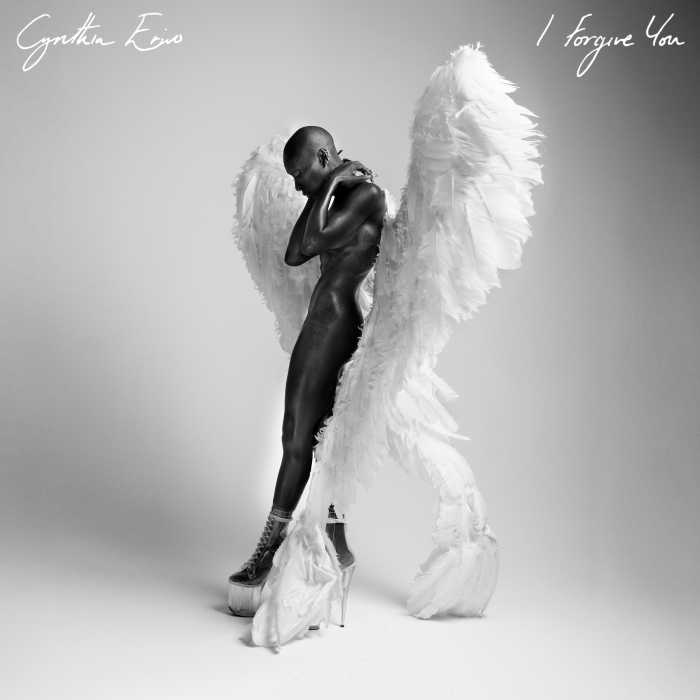The Manhattan School of Music Opera Theater continues to add spice and repertory interest to New York’s operatic mix. On April 1, in the black-box Taub Ades Performance Space, undergraduates, many in their first onstage production, made a strong, pleasing effort in Schubert’s posthumously premiered “Die Verschworenen” (“The Forsworn”).
Director Dona D. Vaughn –– a mistress of concise and pointed action –– and conductor Jorge Parodi, employing monitors, have become very clever in utilizing this space, which basically offers a raised platform next to which the orchestra sits. A few orchestral chords went south and the brass players strayed too often, but otherwise the musical foundation was firm and the lovely, melodic score proved quite enchanting. Certainly the piece’s choral writing is excellent, and though the “Lysistrata”-derived book could use some tweaking, this surely counts among Schubert’s more stageworthy vehicles for a festival venue.
Double-cast, “Die Verschworenen” furnished opportunities for a score of solo singers plus several more in the sonorous chorus. The English speaking portions suited the student milieu, but only the highly promising Mozart tenor Jonathan Tay (Astolf) made much impact in the sung German. Opposite him, Kasondra Kazanjian (Helen) offered the most fully ready-for-professional-work performance, with a dark lyric soprano, stage charm, and the musicianship to ace a wonderful clarinet-underpinned aria.
Heidi Zimdahl and baritone Salim Abed showed big personalities and fine but still developing voices as the Colonel and his Lady, the pivots of the plot. Amanda Bollag (the Ur-soubrette maid Isella) showed spirit working with attractive-voiced mezzo Yajie Chen, here in travesti as the Colonel’s page Udolin, who (disguised) witnesses the women’s strategic conference without undue Bacchic consequences. The whole ensemble displayed talent and commitment in a pleasing afternoon.
Neal Goren’s smart, well-heeled Gotham Chamber Opera celebrated ten seasons by reviving the production that put it on the map –– Christopher Alden’s American premiere staging of “Il sogno di Scipione.” Heard April 17 in the Gerald Lynch Theater –– where Alden’s virtually joyless NYCO “Cosi” held smirky court on a park bench a few weeks back –– the 16-year-old Mozart’s weird, dream-based Metastasian tribute piece proved largely an inspired delight and a seasonal highlight. Alden treated Scipio’s struggle to choose between Constancy and Fate as a post-threesome rom-dramedy for urban yuppies, and by and large it worked, often very well.
Mozart’s arias here are all virtuosic, nearly endless A/ B/ A structures requiring great agility and ease above the stave. In at least two cases –– Fortuna’s second aria as a nasty exercise in serving poisoned martinis and Emilio’s paternal advice issuing from an oddly boyish wheelchair-bound paraplegic who coughed and spit –– one wished the directorial gambits over as soon as they began. The rest showed Alden’s diverting and insightful side. Lighting (Allen Hahn) at times was brilliant, though I imagine I speak for many in feeling I never need to see another lamplight pointed in my eyes or an onstage static-channeling TV.
Six young singers stepped up to the plate for Mozart’s marathon duties. I expect we’ll hear more of all three very talented, attractive sopranos. Susannah Biller, sporting a series of stunning looks by Fabio Toblini, smoldered as bad-girl Fortuna, dispatching staccati with flair and soaring into the stratosphere. Rounder of tone, Marie-Eve Munger’s Costanza proved equally agile and fearless, always bestowing the pleasures of line. The immense good spirits and joy-in-singing asked of Rachel Willis-Sørensen’s impressively vocalized Licenza, who all but ends the show, nearly redeemed the borderline misogyny with which Alden had presented Fortuna.
Three tenors appeared too. As the conflicted Scipione, Nicholas Simpson jumped in with almost no notice for the rising Michele Angelini (about whom reports were strong). In music with nearly impossible Mitridate-like leaps and runs, Simpson showed a fine voice and commendable diction. Pitch sometimes wavered, but his was a fine save under very trying circumstances.
Arthur Espiritu as the hero’s veteran ancestor Publio sang his fiendishly challenging numbers, strikingly staged, amazingly well –– a real find. Chad A. Johnson’s Emilio, hampered by the staging, proved not bad but at a lower level, sounding tight of production and glottally pressured.
Goren hired skilled players and kept things lively, but I had some quibbles. Alden is among our foremost providers of Adding Extra-Musical Noises to the Score –– screams, cackles, grunts, isolated shouted recit words. Here, he –– clever-cleverly, but tiresomely in the long haul –– had singers supply such noises also as bridge cadenzas before the repeats of A sections. One or two such moments would have worked, but…
The Met’s “Götterdaemmerrung” on April 24 showed that director Lepage has made –– under what kind of duress who knows –– changes to the production since January. The famed Machine is quieter, and some silly touches have been played down –– the statues of the gods still look ridiculous in the final scene, but their crumbling no longer makes laughter-inducing noises.
Swedish diva Katarina Dalayman gave a very appealing and moving performance as Brünnhilde, with beautiful sound in the middle range if more than occasional occluded notes on top. As her sister Waltraute, the debuting Karen Cargill showed an intriguing, quite lovely mezzo with fine dynamic control and interesting coloration –– she also acted very intelligently. Definitely a positive addition to the roster!
Tenor Stephen Gould lacks Jay Hunter Morris’ telegenic looks but actually has the stamina for the older Siegfried. There was not much nuance or color in his tone, but he tried his best, especially in the killing scene by the Rhine. Eric Owens was again terrific as Alberich, even in the distracted way Lepage has blocked his one scene.
The brass section was messing up as if it were the Bing era, but the rest of the playing was high caliber.



































